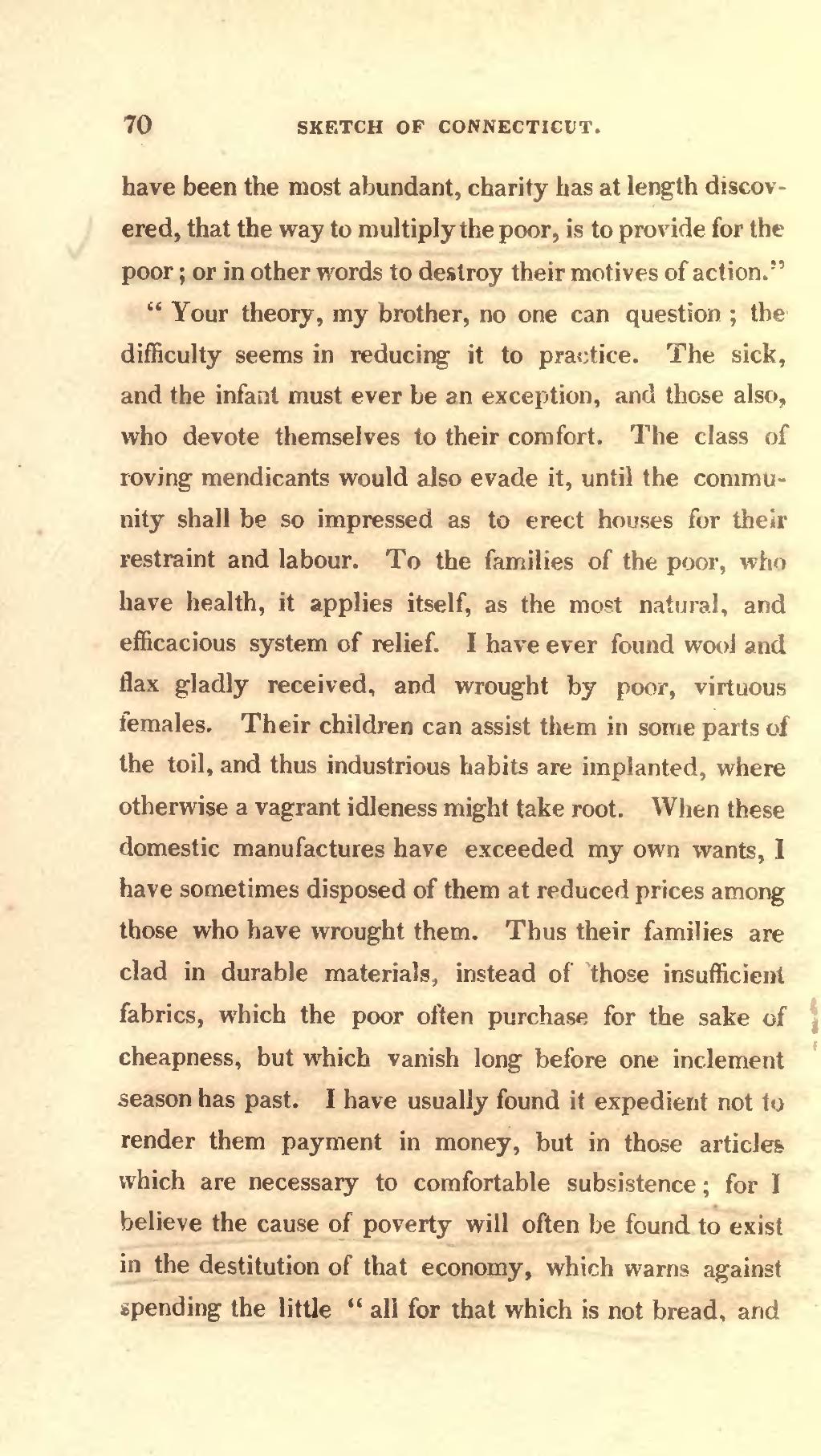have been the most abundant, charity has at length discovered, that the way to multiply the poor, is to provide for the poor; or in other words to destroy their motives of action."
"Your theory, my brother, no one can question; the difficulty seems in reducing it to practice. The sick, and the infant must ever be an exception, and those also, who devote themselves to their comfort. The class of roving mendicants would also evade it, until the community shall be so impressed as to erect houses for their restraint and labour. To the families of the poor, who have health, it applies itself, as the most natural, and efficacious system of relief. I have ever found wool and flax gladly received, and wrought by poor, virtuous females. Their children can assist them in some parts of the toil, and thus industrious habits are implanted, where otherwise a vagrant idleness might take root. When these domestic manufactures have exceeded my own wants, I have sometimes disposed of them at reduced prices among those who have wrought them. Thus their families are clad in durable materials, instead of those insufficient fabrics, which the poor often purchase for the sake of cheapness, but which vanish long before one inclement season has past. I have usually found it expedient not to render them payment in money, but in those articles which are necessary to comfortable subsistence; for I believe the cause of poverty will often be found to exist in the destitution of that economy, which warns against spending the little "all for that which is not bread, and
